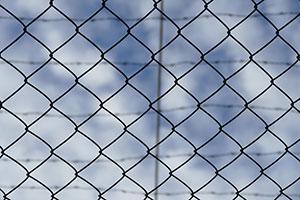The Museums Association Esmee Fairburn Collection Fund has awarded £120,000 to the National Justice Museum to introduce its unique 200-year-old HM Prison Service collection to a wider audience.
The funding supports a three-year project ‘Ingenuity, Creativity, Hope’ involving people in… more
By Bruce Penson, Managing Director of Pro Drive IT
We’ve had our eyes fixed to ITV’s six-part drama, Cleaning Up, over the past few weeks and it’s got us thinking: how well can you really trust everyone that comes in and out of your office(s)?
The biggest risk to your company is, without a doubt, people. From your regular employees and temporary freelancers to cleaning staff, couriers and occasional visitors. And we’re not talking about something as dramatic as a cleaner getting wrapped up in insider trading and using lucrative stock market information to help pay off their gambling debts.
In fact, your business is more likely to be exposed due to simple mistakes, carelessness or casual office gossip. So how can you ensure you keep your data and information safe?
This is much easier if you’re running a smaller company, where you can keep a close eye on the goings-on. But if you’re a big organisation with a hundred plus employees and external people coming in and out on a regular basis? Not so much.
Luckily, there are some measures you can take to protect your company. Here are our top five tips to help keep your organisation’s data and information safe from prying eyes…
#1: Password protection
You wouldn’t leave your house without locking up first, so why would you leave your computer or laptop (with all your valuable  data on it) unlocked? The easiest way to stop people getting their hands on your company’s confidential information is to use secure passwords across all devices, systems and documents. These should be changed regularly and use a combination of upper- and lower-case letters as well as special characters. This is especially important when the information is contained on smaller storage devices, such as USB drives, which can easily be misplaced.
data on it) unlocked? The easiest way to stop people getting their hands on your company’s confidential information is to use secure passwords across all devices, systems and documents. These should be changed regularly and use a combination of upper- and lower-case letters as well as special characters. This is especially important when the information is contained on smaller storage devices, such as USB drives, which can easily be misplaced.
#2: Paperless office
Although computers are the norm in offices these days, many businesses still deal with a lot of paperwork on a day-to-day basis. This leaves you vulnerable as bits of paper containing valuable information often get left lying around or put in the bin for anyone to see or take.
In an ideal world, all offices would be paperless (for both cyber security and environmental reasons). But we realise this is sometimes easier said than done. If going paperless isn’t possible, then be sure to put a ‘shred all’ policy in place so there is no confusion about what should or shouldn’t be shredded after use. This will stop employees from leaving confidential data in the bin. You could also set up a security code for the printer so only certain trusted staff members are able to use it.
#3: Clean desk policy
Most offices will have cleaning crews that come in after hours, as well as other visitors at any given time. Messy desks are extremely vulnerable to prying eyes and snooping, which could result in data theft. Having a clean desk policy will ensure all sensitive information and devices are stored away properly and out of sight…
#4: Lockable storage
A shredder is great, but there will undoubtedly be some important documents that you need to keep on hand. In this case, the best option is to use lockable storage cabinets that only a few select people have the key or code for. Or even better – keep the lockable storage cabinets in a locked room that cannot be accessed by everyone.
#5: Employee training
More often than not, confidential data is leaked due to carelessness or preventable mistakes rather than any malicious reasons. Which is why it’s important to train your employees, so they understand the importance of keeping company data secure and how best to go about this.
And remember, it’s not just in the office that they need to be wary of prying eyes. Employees can now set up office almost anywhere – and coffee shops, airports and hotels are all prime areas for sensitive information to be stolen. So, make sure to educate them on the importance of being cautious about where they set up a workspace. They should also always keep devices on their person or locked in a safe when out of the office or travelling.
Many companies will have the resources and knowledge to provide training on the less-technical aspects of office security. But when it comes to cyber security, most are out of their depth. This is when expert advice and support can prove invaluable. Our Cyber Security Workshops can help you to identify any risks that may affect your business and teach you how to go about protecting yourself.



